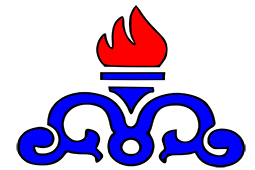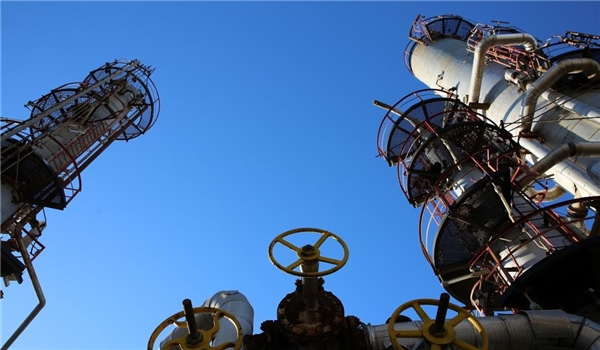
Iranian Company to Manufacture Multi-Phase Pumps of Oil Industry

According to the National Iranian Oil Company (NIOC), CEO of PetroIran Development Company Sepehr Sepehri said on Sunday that his company, as an upstream company in the petroleum industry, was keen on supporting domestic manufacturers and knowledge-based companies in the industry.
PetroIran has signed a contract with the National Iranian South Oil Company (NISOC) regarding the use of Iranian-made multiphase pumps in oil fields.
Referring to PetroIran's efforts to expand technology, innovation and ultimately commercialization and development, which include design, and production of goods and services in the field of high technologies, he said, "one of the main goals of this mission is to create value added through the production of software and hardware, as well as production of data-x-items required in the oil and gas industry based on state-of-the-art technologies.”
He emphasized the necessity of cooperation with domestic manufacturers, adding "Currently, production of multiphase pumps to enhance multiphase fluid pressure of hydrocarbons, which increases the production capacity of oil wells and prevents the burning of gas hence minimizing environmental pollutions, has been on the agenda for mass production, and we're planning for mass-production of this technology.”
Multiphase pumping is becoming increasingly used by operators around the world as a tool for more economical and environmental friendly oil and gas transport.
The whole idea is to flow and pressure boost the raw well stream before separation, treatment and processing.
This leads to a number of production improvements for the operator and to a simpler and more economical way of transporting hydrocarbons over longer distances from the producing field to the process facility.
PetroIran Development Company Limited is an oil and gas company based in Tehran. It is a subsidiary of Naftiran Intertrade, a part of the National Iranian Oil Company, responsible for developing upstream oil projects. The company was established in 1997 and in 1999 it was registered in St. Helier, Jersey.
Last Monday, Iranian Oil Minister Bijan Namdar Zanganeh, in a visit to a manufacturing site of the Oil Turbo Compressor Company (OTC) in Tehran lauded the country’s self-sufficiency in producing equipment and machinery needed in the oil and gas industry, highlighting that the OTC has so far outputted 200 set of 25-megawatt turbines.
“More than 200 set of 25-megawatt turbines and compressors have been supplied by the OTC across the country, all of them manufactured inside (Iran) and relying on the domestic knowledge,” said Namdar Zanganeh, on the sidelines of his visit to an OTC production site in Tehran, adding that the equipment made by the OTC is currently used across Iran’s oil and gas industry and on a wide scale.
He added that key equipment used in oil and gas fields is currently manufactured inside the country without any direct support of the industrial giants of the world.
The minister said that the OTC, once a partner with German industrial conglomerate Siemens AG, had been awarded around €3.6 billion worth of contracts on manufacturing and maintenance of devices used in the oil and gas industry.
He said the company had also made an investment of around €200 million to expand its services in the field.
Namdar Zanganeh admitted the fact that Siemens, once responsible for the bulk of the work on turbines and compressors in Iran’s oil and gas industry, had fulfilled its commitments on technology transfer to its Iranian partner before it stopped doing business in Iran under the pressure of the sanctions.
“One should be fair, Siemens technology transfer was perfect as it has provided the staff of this company (OTC) with proper training,” he said while insisting that Siemens withdrawal from Iran in 2010 triggered the process for indigenization of key oilfield equipment in the country.
Namdar Zanganeh said Siemens has certified the compressors and turbines manufactured by the OTC, allowing Iran to use the equipment in the oil and gas industry with more confidence.
In July, Namdar Zanganeh announced that the country successfully completed installing a super-size drilling rig at South Pars gas field in the Persian Gulf, the largest in the world, without any foreign company involved after Tehran made its industries self-sufficient to defy the US unilateral sanctions.
He announced that the 2,400-ton platform, dubbed SPD-14B, had been mounted earlier in the day by Iranian crew and experts in Persian Gulf waters off the Southern Iranian coast.
Iran has already installed 14A and 14C platform as part of the development plan at South Pars phase 14.
Namdar Zanganeh said eight similar drilling rigs made by Iranian companies would be installed in other projects until the end of the current Iranian calendar year in March, bringing Iran’s output from its offshore gas fields to 27 billion cubic feet (nearly 800 million cubic meters) per day.
Iran has sought to increase its daily production at oil and gas fields despite sanctions imposed by the United States which restricts Tehran’s ability for export.
Zanganeh had said earlier this year that Iran’s gas production at South Pars had already exceeded 21.5 billion feet (610 million cubic meters) per day, adding that Iran’s share of daily production at the field had dwarfed that of Qatar.
He also said last week that Tehran was negotiating with China to sort out the country’s role in South Pars phase 11, a project where the China National Petroleum Corp (CNPC) has been accused of foot-dragging.
The CNPC has held an 80 percent stake in the project since France’s Total withdrew last summer under US pressure.
Back in mid-December 2018, Head of Exploration at the National Iranian Oil Company (NIOC) Seyed Saleh Hendi said US’ unilateral sanctions against Tehran have led Iran to self-sufficiency in producing equipment for oil and gas production.
In 2014, Managing Director of the National Iranian Tanker Company (NITC) Ali Akbar Safayee announced that the country has attained self-sufficiency in the construction of offshore oil platforms despite the sanctions imposed by the West.



Gold price edges up as market awaits Fed minutes, Powell speech

Glencore trader who led ill-fated battery recycling push to exit

Emirates Global Aluminium unit to exit Guinea after mine seized

Iron ore price dips on China blast furnace cuts, US trade restrictions

Roshel, Swebor partner to produce ballistic-grade steel in Canada

US hikes steel, aluminum tariffs on imported wind turbines, cranes, railcars

Trump weighs using $2 billion in CHIPS Act funding for critical minerals

EverMetal launches US-based critical metals recycling platform

Afghanistan says China seeks its participation in Belt and Road Initiative

Energy Fuels soars on Vulcan Elements partnership

Northern Dynasty sticks to proposal in battle to lift Pebble mine veto

Giustra-backed mining firm teams up with informal miners in Colombia

Critical Metals signs agreement to supply rare earth to US government-funded facility

China extends rare earth controls to imported material

Galan Lithium proceeds with $13M financing for Argentina project

Silver price touches $39 as market weighs rate cut outlook

First Quantum drops plan to sell stakes in Zambia copper mines

Ivanhoe advances Kamoa dewatering plan, plans forecasts

Texas factory gives Chinese copper firm an edge in tariff war

Energy Fuels soars on Vulcan Elements partnership

Northern Dynasty sticks to proposal in battle to lift Pebble mine veto

Giustra-backed mining firm teams up with informal miners in Colombia

Critical Metals signs agreement to supply rare earth to US government-funded facility

China extends rare earth controls to imported material

Galan Lithium proceeds with $13M financing for Argentina project

Silver price touches $39 as market weighs rate cut outlook

First Quantum drops plan to sell stakes in Zambia copper mines

Ivanhoe advances Kamoa dewatering plan, plans forecasts

















